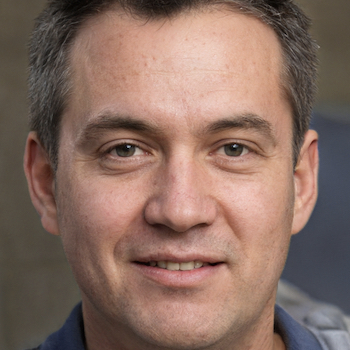
The Age of Sanctions Busting Impunity Must Come to An End
As the war in Ukraine rages on, currently in its third year, much ink has been spilled on both how to make Russia pay for its aggression, as well as how to stop further progress in its bloody campaign against a sovereign nation. And as much of the world has aligned to stand with Ukraine, some have, much like piranhas, reacted to a drop of blood, and inserted themselves into the equation with an eye towards taking advantage of the ongoing carnage, ensuring as much profit as possible.
One such individual is Dutch oil trader Niels Troost. Not a household name like many of Putin’s oligarchs who have been sanctioned globally and find it impossible to operate in the international business environment, Troost, until recently, managed to largely operate under the radar. That is until February of this year when he was sanctioned by the British Foreign Office, alongside almost 50 parties, some working together to undermine Western interests and some working to benefit themselves, but all accused of propping up Putin’s war economy, enriching both themselves and Putin himself in the process.
Troost and his company Paramount Energy SA were slapped with sanctions for the “unobstructed trade in Russian oil outside the scope of the UK and G7 sanctions.” Trading through a subsidiary of his company based in Dubai, a Financial Times investigation showed Troost to be trading in discounted Russian oil, while the Wall Street Journal alleged him to be making around $20 million per tanker. The oil was procured through a network of small-time oil traders indifferent to sanctions regimes, including Concept Oil Services Ltd., a Hong Kong-domiciled firm founded by Monaco resident Michael Zeligman.
What sets Troost apart from the rest of the sanctions evaders, who are primarily interested in self-enrichment, is Troost’s direct relations with the Kremlin. Troost is a known associate of Gennady Timchenko, who following the death of Wagner head Yevgeny Prigozhin in August of last year, found himself at the centre of attention of the international community as a result of his private military company Redut. Comprised of former military men and Russian intelligence officers, Redut has a long history of doing the Kremlin’s dirty work abroad. With Prigozhin out of the way, Timchenko, a former KGB officer and Putin loyalist, and his organization, have been identified as potential replacements, with Troost’s sanctions-busting business actions underwriting the enterprise, ostensibly in exchange for access to discounted Russian oil, and as part of a larger scale coordinated plan to promote Russian interests.
Surprisingly Niels Troost has yet to be sanctioned by the United States, although reports are circulating that sanctioning is imminent after previously undisclosed U.S. business interests were leaked to the FBI. This led Troost to hire one of Washington’s most influential lobbyists, Ankit Desai, to the tune of $100,000 a month to ensure this does not happen. By way of excuse, Troost has argued that trade in contravention of sanctions was conducted by Paramount’s Dubai branch, over which he has no control. Paramount Dubai is, however, under the directorship of a close Troost associate, Francois Edouard Mauron, a Swiss national, as was exposed in a March 2023 Financial Times article, in what journalists Tom Wilson and David Sheppard called “the switch that keeps Putin’s oil flowing.”
The way it worked was quite straightforward, according to the Financial Times investigation. As a means of ensuring continued access to Western banking services and, more importantly, evading sanctions, Troost had his company Paramount, halt Russian trading with a near-identically named company in Dubai, taking up the business under the name Paramount Energy and Commodities DMCC, operating with the help of UAE based financing and transporting their illicit cargo on ships flying Chinese or Indian flags.
Troost was thereby able to distance himself from more recent Russian trades. Paramount SA and Paramount DMCC say the two entities are operated and managed “totally independently” and that Troost has no “direct” holding in the Dubai-based Paramount, although, as was noted, operations were simply managed by a close associate of Troost, Mauron.
Oil has long been a convenient mechanism for continuing trade with Russia under sanctions, particularly because it is quite easy to mask the commodity’s origin, with funds later flowing into legitimate investments to help clean the funds. Indeed, that is how Transneft President Nikolai Tokafev and billionaire Arkady Rotenberg, both of whom are sanctioned, found themselves investing billions in German and Austrian real estate unimpeded.
It is precisely these sorts of individuals who operate under the radar that European governments and the European business community must pay closer attention to if we are to effectively take out the rug from under the Kremlin’s attempts to conspicuously continue funding its war of aggression. Similar attention must be paid by the United States, which has historically been exceptionally strict on sanctions evaders. Not letting Niels Troost get away with what should amount to criminal activity, is only the first step in addressing the much broader issue of those who think they can act with impunity, ignoring international norms and enriching themselves, quite literally, at everybody else’s expense.

